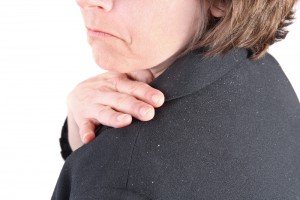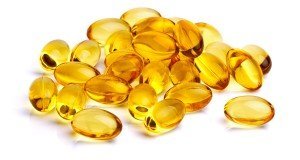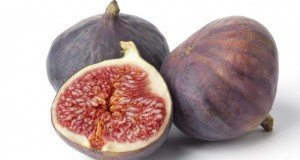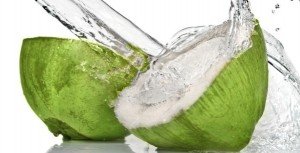 Dandruff is a common scalp condition that occurs when dead skin is shed, producing irritating while flakes and possibly an itchy scalp. Ordinarily, dandruff results from excessive drying of skin and over-activity of the oil glands, known as Seborrhea.
Dandruff is a common scalp condition that occurs when dead skin is shed, producing irritating while flakes and possibly an itchy scalp. Ordinarily, dandruff results from excessive drying of skin and over-activity of the oil glands, known as Seborrhea.
Dandruff, which is visible desquamation of scalp, is the mildest manifestation of seborrheic dermatitis and caused by P. ovale combine with multiple host factors. Dandruff is commonly aggravated by changes in humidity, trauma, season and emotional stress.
Dandruff has been shown to be the result of either:
- Sebum or Sebaceous secretions
- The metabolic by-products of skin micro-organisms (most specifically Malasseziayeasts)
- Individual susceptibility
Other contributing factors include fatigue, emotional stress, acne, hormonal imbalances, constant exposure to dry air, trauma, season, use of lotions that contain alcohol, and neurological conditions such as stroke, head injuries etc.
Synthetic Treatments available for the management of dandruff include therapeutic use of
- Zinc pyrithione
- Salicylic acid
- Imiadazole derivatives
- Glycolic acid, Steroids,
- Sulphur
- Selenium Sulphide
- Tar derivatives
- Piroctoneolamine
- Undecylenic acid derivatives
Herbal Treatments
Biotin, an important vitamin like nutrient that the body uses in many ways, is a major antidandruff compound.
- Soybean (Glycine max) and other biotin containing food materials
Almost all the plants contain biotin to some extent, Soybeans contain the most, followed by garlic, American ginseng, oats, barley, Asian ginseng, avocado, cottonseed, alfalfa, sesame, corn, fava beans and elderberry. The amount of biotin required is 700mg/day.
- Burdock (Arctiumlappa)
Burdock root oil massage into the scalp helps in treatment of Seborrhea.
- Celandine (Chelidoniummajus)
Celandine works not only for dandruff but also for dry skin, hives, corns and warts. For preparing shampoo take one teaspoon of potassium chloride into six cups of water and heat it to dissolve, then add four ounces of fresh celandine to the solution, leave the solution for two hours, then boil slowly for 20 minutes. Filter the solution and reduce the solution to two cups. Add eight ounces of glycerin and again reduce the liquid to two cups. This solution can be used twice a day as a hair rinse.
- Comfrey (SymphytumOfficinale)
Allantion, the chemical present in this herb, has anti-dandruff properties. For preparing shampoo add a couple of drops of comfrey tincture to herbal shampoo.
- Ginger and Sesame
Ginger and sesame is used for dandruff/seborrhea treatment. For preparing the shampoo take one to two tablespoons of ginger juice and mix it with three tablespoons of sesame oil and a half teaspoon of lemon juice. This mixture can be used three times a week to rub into the scalp.
- Licorice (Glycyrrhizaglabra)
Dandruff can be controlled by keeping the oil production down. Glycyrrhizin present in Licorice can minimize the scalp’s secretion of oils. Licorice also contains salicylic acid.
- Plantain (Plantago major and various species)
Like comfrey, plantain also contains allantoin. Boil plantain with water and use it as a hair rinse.
- Teatree (Melaleuca, various species)
Teatea oil, an antiseptic, contains substances known as terpenes that penetrate the top layers of the scalp and carry their disinfectant activities deeper than most emollients. Teatree oil, or any essential oil, can be poisonous internally as they are extremely concentrated.
- Thyme (Thymus vulgaris) and Sage (Salvia Officinalis)
Thyme is used as a powerful antiseptic. Many herablists recommend the old standard – one ounce each of dried sage and rosemary infused in two cups of water for 24 hours and used daily as a hair rinse. Adding a few drops of tincture of each of parsley, sage, rosemary and thyme herbs gives a good commercial herbal shampoo.
- Vinegar and apple cider
These both are used as old folk remedies for dandruff. Dried herb in vinegar an be used as hair rinse. Before shampoo apply the liquid directly to the scalp.
- Tea (Camellia sinensis)
Tea contains astringent tannins together with phytochemicals like salicylic acid, sulphur and zinc responsible for antidandruff activity. For preparing shampoo take tea leaves and make an extra strong infusion for an easy, effective after shampoo treatment for hair and scalp.
- Peppermint (Menthapiperita)
Peppermint contains menthol, selenium and zinc, these are all proven antiflake ingredients available in commercial preparations.
- Calendula officinals
Salicylic acid present in calendula officinals is responsible for its antidandruff activity.
- Juniper (Juniperuscommunis)
Menthol, selenium and zinc along with other antifungal agents are present in Juniper. These are the ingredients also present in commercially available shampoos.
The synthetic treatment options available have certain limitations. Furthermore, these synthetic drugs are unable to prevent recurrence. The best approach to treat dandruff is to use herbal antidandruff shampoo and go for a balanced diet. A combination of nutritional and herbal treatment should bring improvements in 6-8 weeks.
 Optical Network
Optical Network






